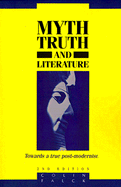Book contents
Summary
[T]he poet makes the terms themselves. He does not make judgements, therefore; he only makes them possible – and only he makes them possible.
owen barfieldOn one of the opening pages of his Defence of Poetry, and without making excessively heavy transcendental weather of his argument (he was “defending” poetry against his friend Peacock's account of it as no more than a sentimental anachronism in the modern age of reason and science). Shelley tells us that “[i]n the youth of the world, men dance and sing and imitate natural objects, observing in these actions, as in all others, a certain rhythm or order.” In the same paragraph he suggests that
[i]n the infancy of society every author is necessarily a poet, because language itself is poetry … Every original language near to its source is in itself the chaos of a cyclic poem: the copiousness of lexicography and the distinctions of grammar are the works of a later age, and are merely the catalogue and the form of the creations of poetry.
The language of poetry, or of poets, he tells us,
is vitally metaphorical; that is, it marks the before unapprehended relations of things and perpetuates their apprehension, until words, which represent them, become through time, signs for portions or classes of thought, instead of pictures of integral thoughts; and then, if no new poets should arise to create afresh the associations which have been thus disorganized, language will be dead to all the nobler purposes of human intercourse.
(Defence of Poetry, pp. 102–3)- Type
- Chapter
- Information
- Myth, Truth and LiteratureTowards a True Post-modernism, pp. 55 - 85Publisher: Cambridge University PressPrint publication year: 1994



